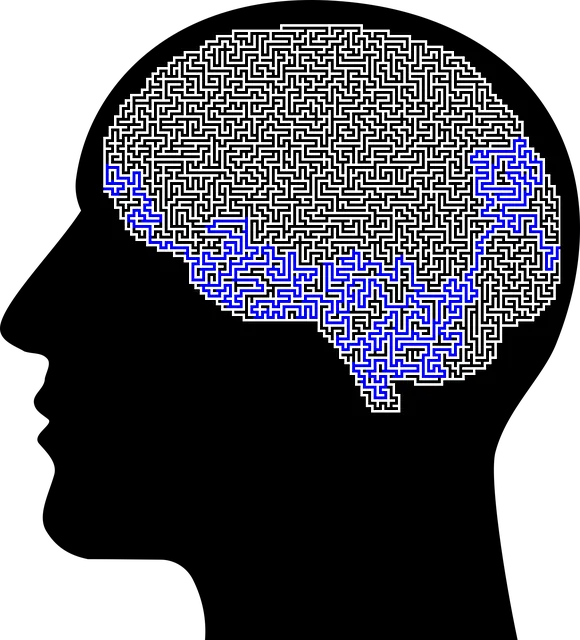Depression is a serious global condition characterized by persistent low mood and various symptoms. Early recognition and self-awareness are key to managing it effectively. Kaiser provides mental health services in Littleton, offering a tailored approach that includes therapy, medication, support groups, and mindfulness practices like journaling. By combining professional help with holistic well-being strategies, individuals can prevent and manage depression, enhancing their quality of life.
Depression is a common yet serious condition affecting millions worldwide. Understanding its signs and symptoms is the first step towards prevention. This article explores comprehensive strategies to combat depression, focusing on holistic approaches and professional support. We delve into recognizing red flags and discuss Kaiser’s mental health services in Littleton as a valuable resource. Additionally, we provide insights on lifestyle changes proven effective for preventing and managing depression.
- Understanding Depression: Recognizing Signs and Symptoms
- Kaiser's Mental Health Services in Littleton: What to Expect
- Lifestyle Changes for Prevention: A Holistic Approach
- Professional Support: Therapy, Medication, and Community Resources
Understanding Depression: Recognizing Signs and Symptoms

Depression is a complex mental health condition that affects millions worldwide, and early recognition of its signs is crucial for effective prevention and treatment. It’s important to note that depression isn’t just feeling sad or blue; it’s a persistent low mood and loss of interest in activities once enjoyed, impacting daily functioning and overall well-being. Does Kaiser offer mental health services in Littleton? Absolutely, they provide comprehensive care, but being able to identify the signs yourself is the first step towards seeking help.
Recognizing changes in your thoughts, feelings, and behaviors can be empowering. Common symptoms include persistent sadness, feelings of worthlessness or guilt, changes in appetite and sleep patterns, fatigue, difficulty concentrating, and even recurrent thoughts of death or suicide. Encouraging mental wellness through practices like journaling can offer valuable insights and serve as a form of self-care. Mental wellness journaling exercises guidance on tracking moods, identifying triggers, and cultivating gratitude—all of which contribute to proactive depression prevention.
Kaiser's Mental Health Services in Littleton: What to Expect

Kaiser’s Mental Health Services in Littleton offer a comprehensive range of support for those dealing with mental health challenges. The services are designed to meet the unique needs of individuals and families in the community, focusing on both short-term intervention and long-term emotional healing processes. Therapists and counselors utilize evidence-based practices and mind over matter principles to assist patients in managing symptoms of depression, anxiety, and other mental illnesses.
These services cater to various age groups, providing specialized care for adolescents, adults, and seniors. The team at Kaiser is committed to creating a safe and non-judgmental environment, aiming to reduce the stigma associated with mental illness. Through individual therapy, group support sessions, and education on coping strategies, patients are empowered to take charge of their mental well-being.
Lifestyle Changes for Prevention: A Holistic Approach

Depression prevention strategies often focus on lifestyle changes that promote holistic well-being. This includes adopting healthy habits such as regular exercise, balanced nutrition, and sufficient sleep. These foundational aspects are crucial in maintaining mental wellness and can significantly impact an individual’s resilience against depressive episodes. According to studies, engaging in physical activity releases endorphins, which act as natural mood boosters, while a nutritious diet ensures the brain receives essential nutrients required for optimal function.
In today’s digital era, where stress management plays a pivotal role in mental health policy analysis and advocacy, integrating mindfulness practices into daily routines can be game-changing. Kaiser offers comprehensive mental health services in Littleton, emphasizing preventive measures that go beyond traditional therapy. By combining lifestyle modifications with professional support, individuals can create a robust defense against depression, fostering resilience and enhancing overall quality of life.
Professional Support: Therapy, Medication, and Community Resources

When it comes to preventing depression, professional support is a cornerstone of holistic mental health care. Kaiser, for instance, offers comprehensive mental health services in Littleton, encompassing therapy, medication management, and community resources tailored to individual needs. Therapies like cognitive behavioral therapy (CBT) are widely recognized for their effectiveness in treating depression by helping individuals identify and change negative thought patterns and behaviors. Medication, when prescribed by a qualified healthcare provider, can also play a significant role in managing symptoms.
Community resources, including support groups and conflict resolution techniques workshops, provide valuable opportunities for social connection and coping skills development. These platforms foster emotional regulation by offering safe spaces to express feelings, share experiences, and learn effective strategies for navigating life’s challenges. By leveraging these professional supports, individuals can build resilience against depression and cultivate a healthier, more balanced lifestyle.
Depression prevention is a multifaceted approach that combines understanding symptoms, adopting healthy lifestyle changes, seeking professional support, and utilizing available resources like Kaiser’s mental health services in Littleton. By recognizing signs early on and taking proactive measures, individuals can effectively navigate through challenging times and foster long-term well-being. Remember, it’s never too late to reach out for help; whether through therapy, medication, or community resources, there are effective solutions tailored to meet individual needs.






